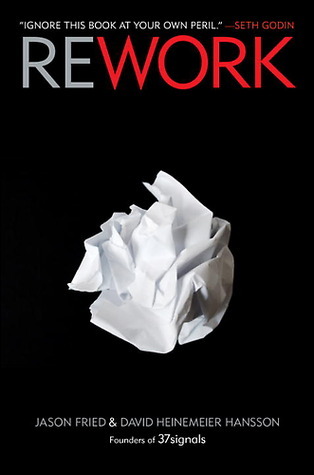More on this book
Community
Kindle Notes & Highlights
It’s even for people stuck in day jobs who have always dreamed about doing their own thing. Maybe they like what they do, but they don’t like their boss. Or maybe they’re just bored. They want to do something they love and get paid for it.
Failure is not a prerequisite for success. A Harvard Business School study found already-successful entrepreneurs are far more likely to succeed again (the success rate for their future companies is 34 percent). But entrepreneurs whose companies failed the first time had almost the same follow-on success rate as people starting a company for the first time: just 23 percent. People who failed before have the same amount of success as people who have never tried at all.* Success is the experience that actually counts.
Unless you’re a fortune-teller, long-term business planning is a fantasy. There are just too many factors that are out of your hands: market conditions, competitors, customers, the economy, etc. Writing a plan makes you feel in control of things you can’t actually control.
When you turn guesses into plans, you enter a danger zone. Plans let the past drive the future. They put blinders on you. “This is where we’re going because, well, that’s where we said we were going.” And that’s the problem: Plans are inconsistent with improvisation.
Maybe the right size for your company is five people. Maybe it’s forty. Maybe it’s two hundred. Or maybe it’s just you and a laptop. Don’t make assumptions about how big you should be ahead of time. Grow slow and see what feels right—premature hiring is the death of many companies. And avoid huge growth spurts too—they can cause you to skip right over your appropriate size.
Workaholics wind up creating more problems than they solve. First off, working like that just isn’t sustainable over time. When the burnout crash comes—and it will—it’ll hit that much harder.
Workaholics aren’t heroes. They don’t save the day, they just use it up. The real hero is already home because she figured out a faster way to get things done.
Best of all, this “solve your own problem” approach lets you fall in love with what you’re making. You know the problem and the value of its solution intimately. There’s no substitute for that. After all, you’ll (hopefully) be working on this for years to come. Maybe even the rest of your life. It better be something you really care about.
Ideas are cheap and plentiful. The original pitch idea is such a small part of a business that it’s almost negligible. The real question is how well you execute.
No time is no excuse
When you want something bad enough, you make the time—regardless of your other obligations. The truth is most people just don’t want it bad enough. Then they protect their ego with the excuse of time. Don’t let yourself off the hook with excuses. It’s entirely your responsibility to make your dreams come true. Besides, the perfect time never arrives. You’re always too young or old or busy or broke or something else. If you constantly fret about timing things perfectly, they’ll never happen.
When you don’t know what you believe, everything becomes an argument. Everything is debatable. But when you stand for something, decisions are obvious.
There’s nothing wrong with being frugal. When we launched our first product, we did it on the cheap. We didn’t get our own office; we shared space with another company. We didn’t get a bank of servers; we had only one. We didn’t advertise; we promoted by sharing our experiences online. We didn’t hire someone to answer customer e-mails; the company founder answered them himself. And everything worked out just fine. Great companies start in garages all the time. Yours can too.
You can turn a bunch of great ideas into a crappy product real fast by trying to do them all at once. You just can’t do everything you want to do and do it well. You have limited time, resources, ability, and focus. It’s hard enough to do one thing right. Trying to do ten things well at the same time? Forget about it.
Long projects zap morale. The longer it takes to develop, the less likely it is to launch. Make the call, make progress, and get something out now—while you’ve got the motivation and momentum to do so.
You don’t make a great museum by putting all the art in the world into a single room. That’s a warehouse. What makes a museum great is the stuff that’s not on the walls.
So constantly look for things to remove, simplify, and streamline. Be a curator. Stick to what’s truly essential. Pare things down until you’re left with only the most important stuff. Then do it again.
Think about it this way: If you had to launch your business in two weeks, what would you cut out? Funny how a question like that forces you to focus. You suddenly realize there’s a lot of stuff you don’t need. And what you do need seems obvious. When you impose a deadline, you gain clarity. It’s the best way to get to that gut instinct that tells you, “We don’t need this.” Put off anything you don’t need for launch. Build the necessities now, worry about the luxuries later. If you really think about it, there’s a whole lot you don’t need on day one.


